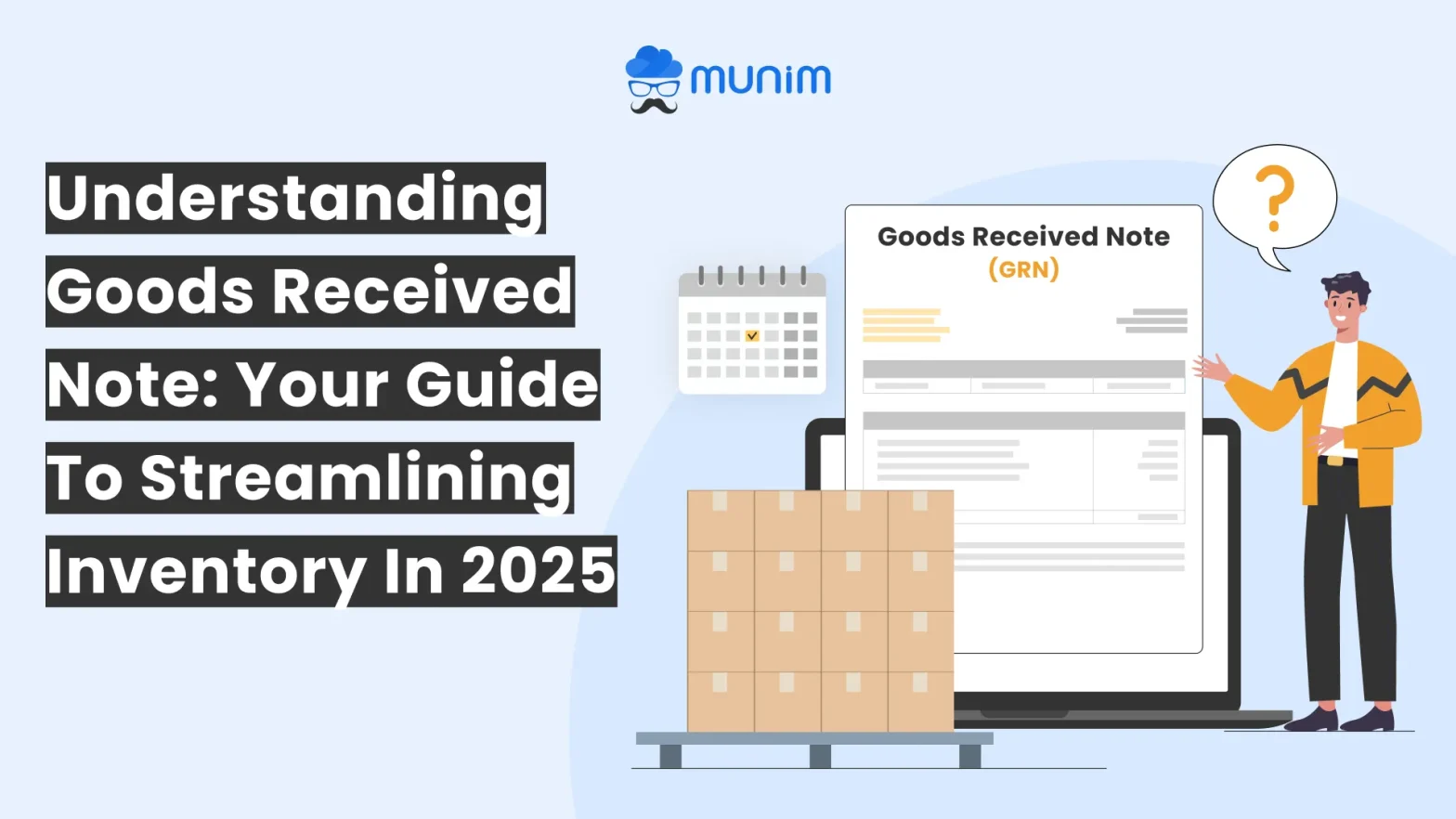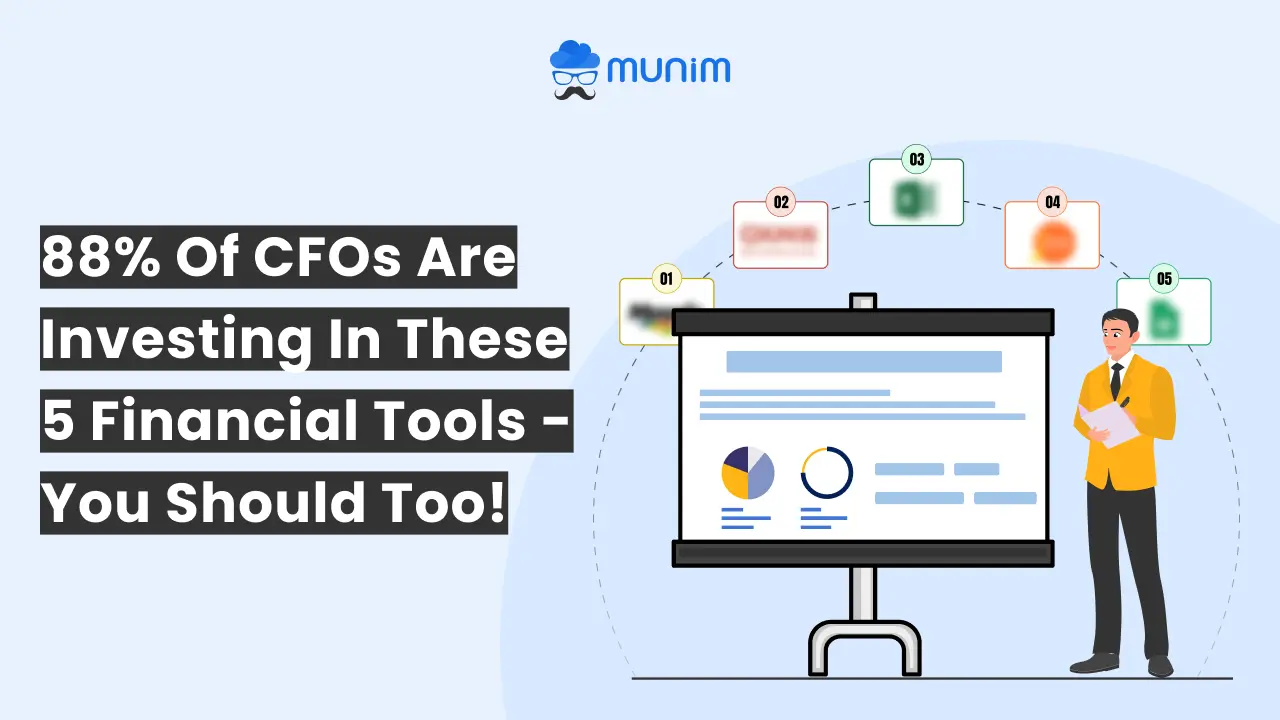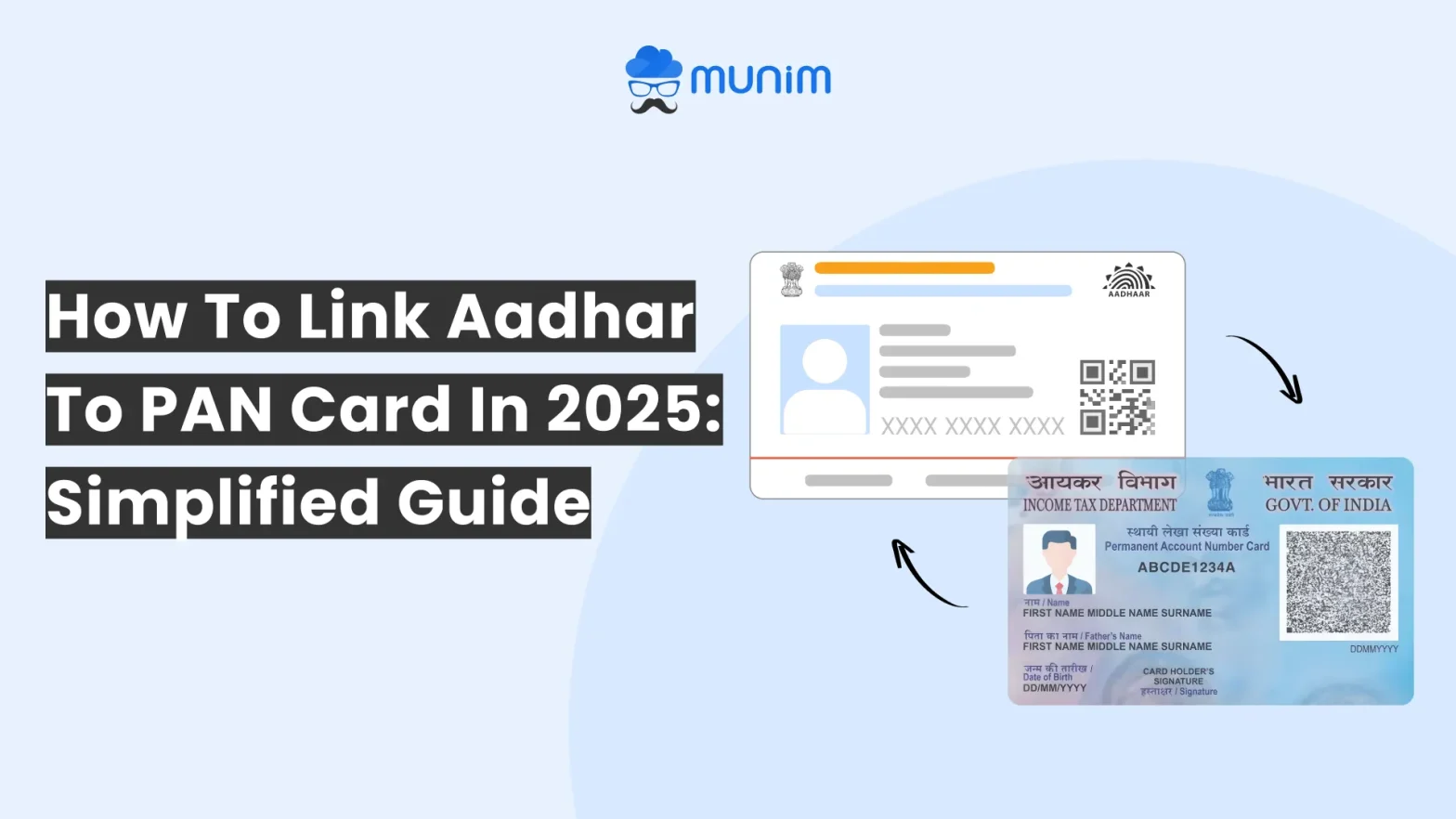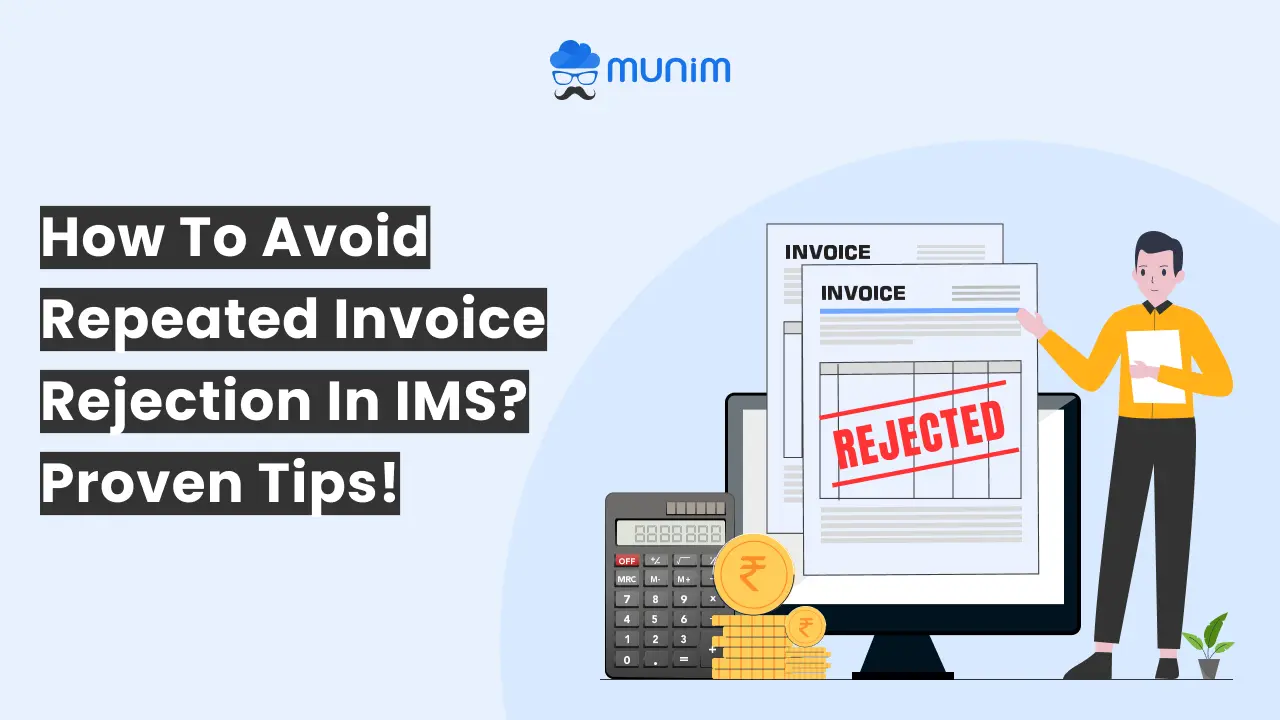The Future of Accounting & Billing Software
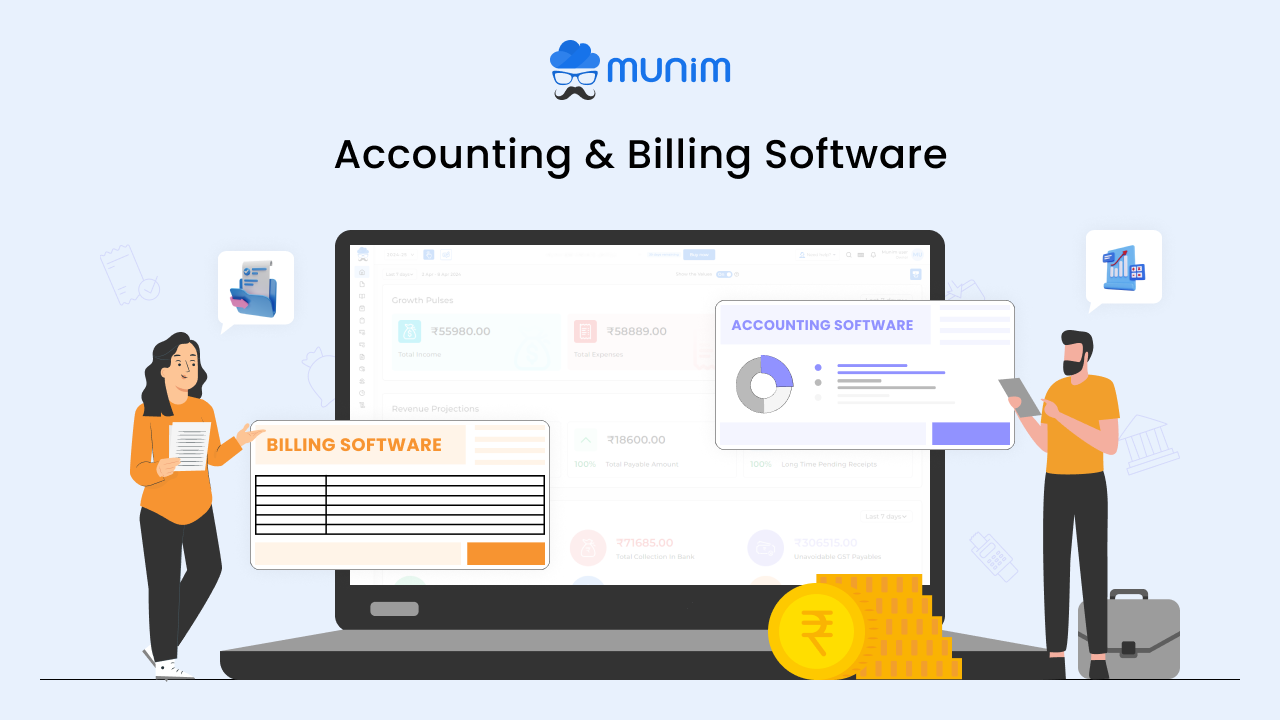
Technological advancements are reshaping every industry, including the financial sector. In India, the accounting software industry has seen significant growth and innovation in recent years. However, the post-COVID era has accelerated these changes, with businesses increasingly adopting advanced technologies in their accounting and billing processes. In this blog post, we will discuss some of the top technology trends that are expected to shape the future of accounting and billing software in India.
Top Accounting & Billing Software Trends In 2024
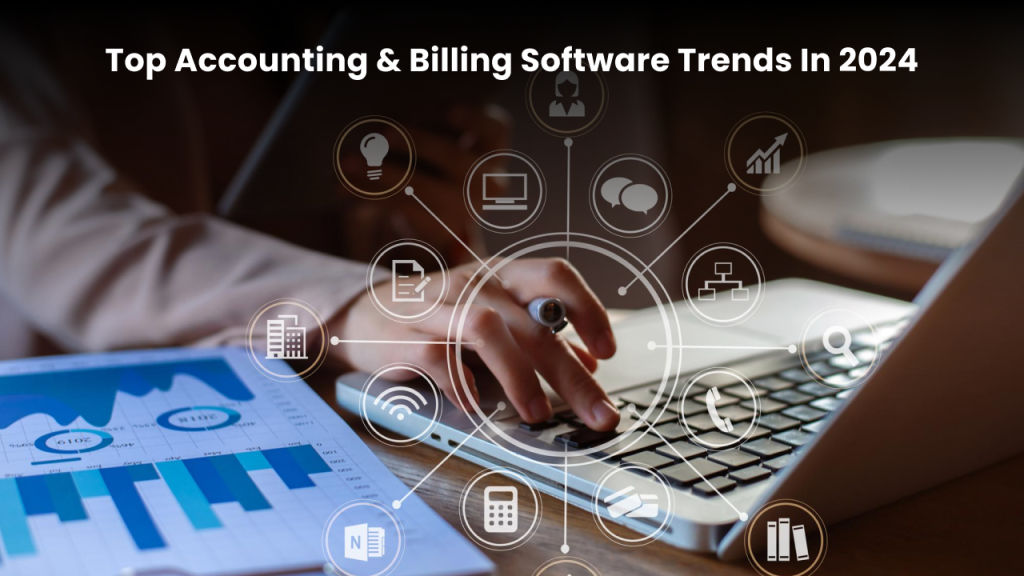
Optical Character Recognition
OCR, or Optical Character Recognition, is a technology that converts computer-typed or handwritten documents into machine-readable text. For instance, imagine a scenario where a business receives a handwritten invoice. With OCR, this invoice can be quickly scanned and converted into a digital format, reducing processing time and compliance costs.
How does OCR work in accounting and billing software?
- Either handwritten notes or digital files are uploaded to OCR software or tool. i.e. Imagetotext.info.
- The software or tool then processes the text characters, converts them, and stores them in electronic format
- Files are sent to integrated finance accounting software for further processing
Artificial Intelligence & Machine Learning
AI and ML technologies are already used in some accounting and billing software for invoice processing, data entry, and fraud detection. Apart from that, AI and ML could be employed for:
- Forecast the financial health of the company based on the data provided and by studying current trend
- Develop new strategies/methods/procedures to manage company finances
- Identify accounting anomalies and data discrepancies
- Provide personalized recommendations to accountants, considering their needs and preferences
Cloud Computing
Cloud computing is on the rise in the accounting industry due to its various advantages, which are as follows:
- Scalability: Only with cloud-based accounting software in India is it possible to scale up or down quickly, and that’s what makes it feasible for all sizes of businesses
- Accessibility: The best thing about cloud-based accounting software is that it is accessible from anywhere; all you need is a stable internet connection to enable remote working for your employees
- Pocket-friendly: Compared to terminal-based accounting software, cloud accounting software is an affordable solution because businesses do not have to invest in high-end hardware
Apart from the above-mentioned advantages, cloud-based accounting software provides users with the latest features without manually updating them. This technology relieves business owners from maintaining, updating, and troubleshooting their hardware and software infrastructure.
Blockchain
Blockchain is a ledger technology that many accounting and billing software still need to leverage. It has the potential to revolutionize the whole accounting industry, not just by lowering reconciliation costs and minimizing ledger management risks, but also by creating tamper-proof financial records. This can significantly enhance data security and privacy, a critical concern in the accounting industry.
Blockchain can also be used for the following accounting purposes:
Auditing: Businesses can utilize blockchain technology to audit financial statements more effectively and efficiently
Reconciliation: Accounts reconciliation can be automated with the help of blockchain technology, saving time for accountants
Automating accounts payable and receivable: Businesses can use blockchain technology to automate the accounts payable and receivable process, making it error-free and efficient.
Data Analytics
Data analytics is key to understanding and forecasting business performance. It is becoming increasingly popular among CFOs, CEOs, and COOs to gain insight into a company’s historical data and predict future trends.
In the coming years, data analytics will become a mainstream feature in accounting and billing software. And many more such features will be added, such as:
- Predictive analytics – This helps businesses forecast the company’s future in terms of sales, revenue, and growth. Additionally, it can also identify potential risks.
- Real-time dashboard – Stay updated with the latest critical financial metrics like revenue, expense and profitability in real time
Using data analytics, businesses can make data-backed decisions and drive higher profitability.
Automation
Automation is a critical trend in finance accounting software that businesses should look for. It reduces the burden of repetitive tasks from accountants, such as:
Accounts Receivable: Automation-enabled accounting software is capable of generating and sending statements, tracking payments and sending notifications to customers whose payment deadlines are approaching
Accounts payable: With automation-enabled accounting software, generating and sending invoices, processing payments and reconciling accounts payable can be automated.
Additionally, automation enables accounting software to automate various other accounting tasks, which are as follows:
- Financial reporting
- Journal entry recording
- GST documentation
With automated accounting, business processes can be made efficient and accurate and save time and money.
Mobile Accounting
Mobile accounting is one of the most demanding trends among businesses in India as it provides flexibility to work on the go. To facilitate this trend, accounting software launched their app for Android and iPhone. The following tasks can be performed on the mobile accounting app:
- Creating or modifying invoice
- Approving payments
- Reconcile accounts
- Entering journal entries
Mobile accounting is in demand among businesses as it allows them to work remotely, providing flexibility and convenience. This is beneficial for companies, enabling them to work from different locations and ensuring business continuity even in challenging situations. Additionally, mobile accounting apps often come with user-friendly interfaces and real-time data updates, making it easier for businesses to stay on top of their financials.
Big Data
Big data can help businesses reduce human intervention in accounting tasks and aid in essential decision-making. However, it’s important to note that managing and analyzing large volumes of data can be challenging. Businesses need to invest in robust data management and security measures to ensure the integrity and confidentiality of their data.
Due to its multiple capabilities, new-age finance accounting software in India is proactively moving towards adopting this technology.
This move helps accounting software stay relevant in the market and attract more users. With the adoption of big data analytics, organizations can work on planning, production, quality control, sales, marketing, and forecasting.
Over To You
So, this was all about the future of accounting and billing software for businesses in India. After reading this blog, you will learn about future trends in finance accounting software in 2024. We recommend you look for these technologies in accounting software, which ensure less repetitive work, high productivity, and boosting overall productivity.
It’s also important to note that these technologies are not meant to replace accountants, but rather to augment their roles. As these technologies automate more routine tasks, accountants will have more time to focus on strategic activities, such as financial planning and analysis, that require human judgment and expertise.
Frequently Asked Questions on the Future of Accounting & Billing Software
Will accounting be automated in the future?
Ans. With the advent of technology, automation will substitute some accounting tasks, but it is impossible to completely automate all the tasks and replace accountants.
How is AI technology uses in accounting software?
Ans. With the application of AI technology, accountants can do automatic data entry, real-time reporting, data analysis, and workflow automation.
What is RPA in billing?
Ans. RPA stands for Robotic Process Automation. This technology aids in streamlining workflow, eliminating manual data entry, and automatically managing billing documents.

